Counting the Stars: How Many Final Fantasy Games Are There?
The Final Fantasy series is like a galaxy brimming with countless stars. Each game represents a unique star, shining brightly with its own story, characters, and gameplay mechanics. Like the stars in the night sky that have guided sailors for millennia, these games guide players on countless adventures, illuminating the gaming universe with their brilliance and depth. And just like the vastness of space, there is a whole lot to explore in Square-Enix’s beloved franchise.
If you've ever found yourself wandering in the vast digital plains of a Final Fantasy game, you'll understand why this franchise has garnered a massive global following. But have you ever paused mid-quest and thought, "Just how many Final Fantasy games are there?" Today, we're on a quest to find that number.
How Many Final Fantasy Games Are There?
Since the release of the first Final Fantasy game by Square (now Square Enix) in 1987, this franchise has truly become a beacon in the video game world. As of July 2023, there are 16 mainline Final Fantasy games, but’s just the tip of the astral iceberg. We also have to consider the many spin-offs, sequels, and remakes, which together take the series to an astronomical 109 titles.
These titles encompass everything from direct sequels like Final Fantasy X-2, to spin-off series like the Final Fantasy Tactics and Dissidia, remakes such as Final Fantasy VII Remake, and even mobile games like Final Fantasy: Brave Exvius. As you’d expect, there are also a few (failed) live service attempts thrown in for good measure.
Without a doubt, the universe of Final Fantasy is vast so is there a way one should go about its exploration?
How to Play All Final Fantasy Games in Chronological Order
Hironobu Sakaguchi may have kicked off one of the largest gaming franchises known to man, but it does have one saving grace compared to others: it’s quite flexible to get through. For the most part, mainline games have almost no narrative connection to one another. Technically you can get through them in any order you please and even skip a few.
However, there is one approach you can take to really experience the evolution of Final Fantasy and that is through a “chronological” order run of the games. We put this in quotes because, in this context, the chronology only plays a role with direct sequels. You’d still be playing the games in release order.
Venturing through the Final Fantasy series in chronological order provides an insightful journey into the evolving game design, mechanics, and storytelling of this legendary franchise. And with how many titles the series has, it can serve as a guide to light your path:
Stranger of Paradise: Final Fantasy Origin: This action-RPG prequel provides a fresh take on the events preceding the original Final Fantasy game, offering a perfect starting point.
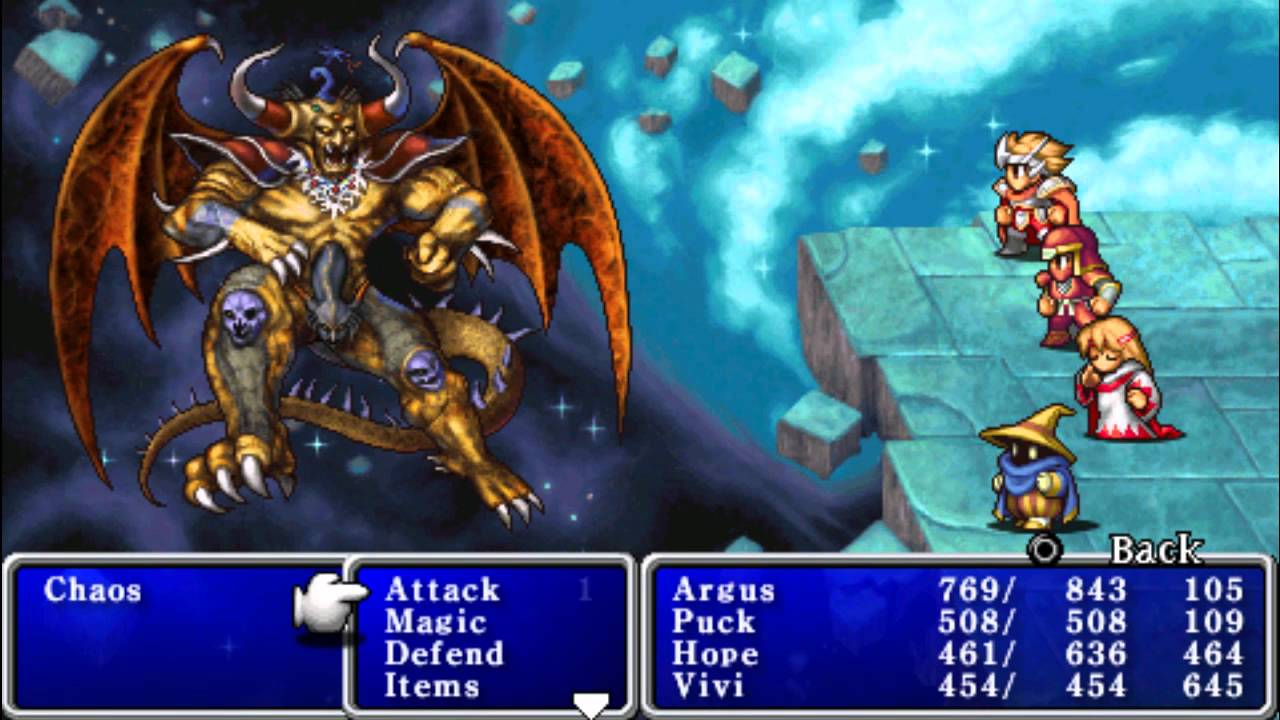
Final Fantasy: The epic beginning of the franchise, Final Fantasy set the standard with its groundbreaking turn-based combat and ensemble of heroic characters.
Final Fantasy II: The sequel innovated with a skill improvement system, paving the way for character development in future games.
Final Fantasy III: Final Fantasy III introduced the job system, giving players the flexibility to switch classes and diversify their gameplay experience.
Final Fantasy IV: This installment was a game-changer, placing a greater emphasis on character-driven narratives and dynamic character growth.
Final Fantasy V: This title further refined the job system, bringing more depth and customization to the gameplay.
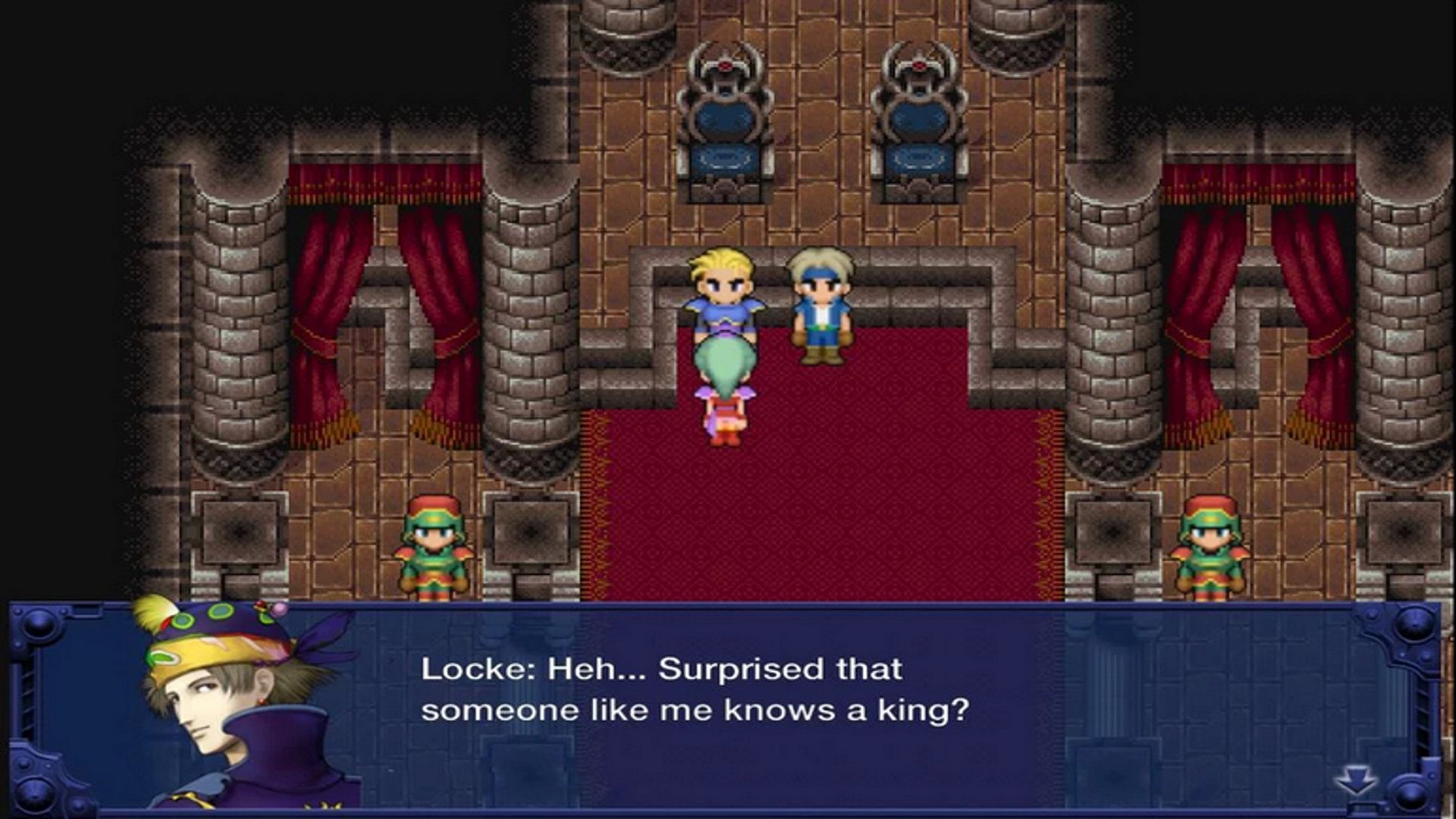
Final Fantasy VI: Hailed for its narrative, Final Fantasy VI ushered in an era of intricate storytelling within the franchise.
Crisis Core: Final Fantasy VII: This prequel to Final Fantasy VII provides valuable context and character development leading into the main game.
Final Fantasy VII: An iconic title, the original Final Fantasy VII was a global phenomenon. With its rich narrative and innovative gameplay, it left an indelible mark on the franchise. Notably, Final Fantasy VII has been remade with dramatic changes to the story and gameplay, providing a fresh take on this classic.
Final Fantasy VIII: Following VII's success, Final Fantasy VIII further pushed the boundaries with more realistic graphics and a unique magic system.
Final Fantasy IX: A love letter to fans, Final Fantasy IX returned to the series' roots with a more traditional fantasy setting and classic gameplay mechanics.

Final Fantasy X: The first game in the series to feature voice acting, Final Fantasy X delivered a highly emotional narrative in a stunningly-rendered world.
Final Fantasy X-2: As a direct sequel to X, this game expands upon the story of its predecessor with a unique job system and an all-female cast.
Final Fantasy XI: The franchise's first foray into the MMO genre. Given the massive scale of its story, newcomers may choose to skip this title in favor of the mainline games.
Final Fantasy XII: This title introduced real-time combat and strategic play to the series, departing from the traditional turn-based system.
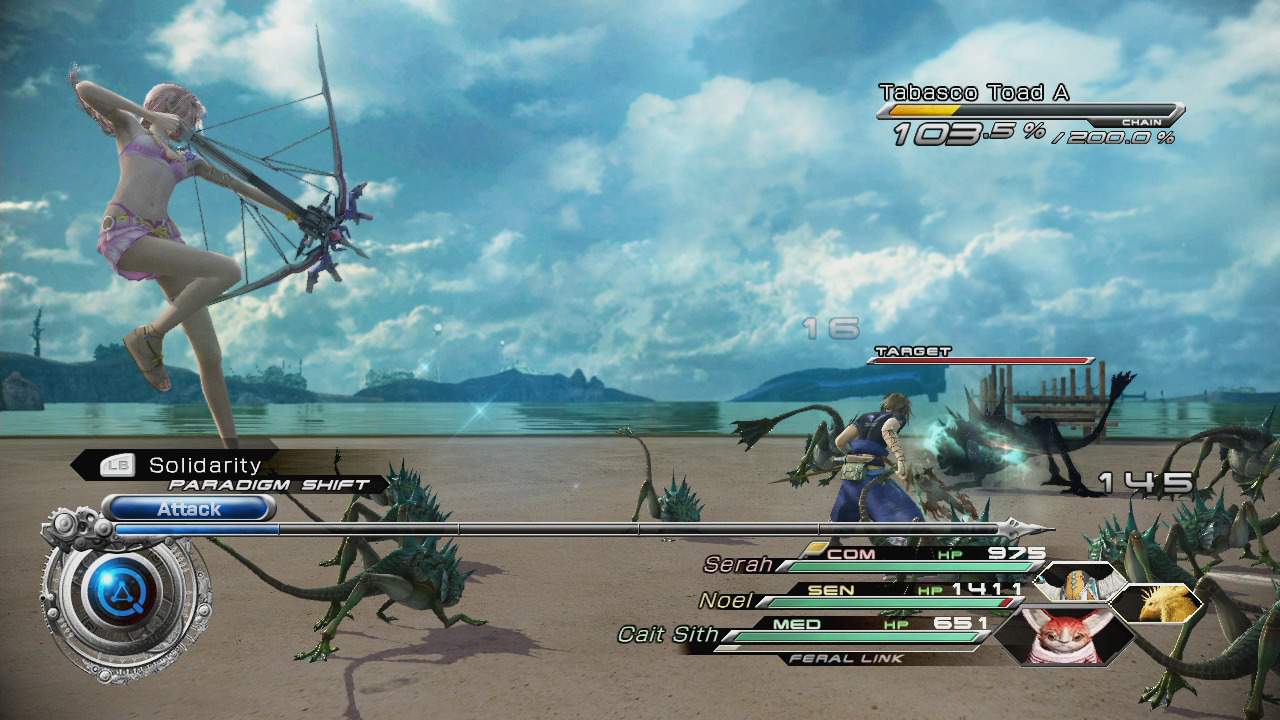
Final Fantasy XIII: The first of a trilogy, Final Fantasy XIII was praised for its fast-paced combat and intricate storytelling.
Final Fantasy XIII-2: This direct sequel to XIII delivers an evolved battle system and a more player-driven narrative.
Lightning Returns: Final Fantasy XIII: Concluding the XIII trilogy, this game features a unique time-limited structure and wraps up the narrative arc of its protagonists.
Final Fantasy XIV: Like XI, this is another MMO with an expansive narrative. While it offers rich lore and vibrant world-building, first-time players might opt to skip it due to its large scale.
Final Fantasy XV: Marking a departure from traditional JRPG elements, XV blends real-time combat with open-world exploration for a fresh take on the series.

Final Fantasy XVI: The latest mainline game, Final Fantasy XVI continues to push the franchise forward, blending a high-fantasy setting with action-packed combat.
While this list provides a comprehensive guide, remember that the charm of Final Fantasy lies in its diverse storytelling and gameplay. Whether you follow this order or choose your own path, each game offers a unique journey worth exploring.
Which Are the Most Important Final Fantasy Titles to Play?
We hear you. Even narrowing down to the mainline games and their sequels still makes for a lot of titles to get through. If you’re going to twist our arm, it is possible to boil the essence of the series to a few key titles.
Deciding which Final Fantasy games are the most important can be a contentious topic amongst fans. But if we're talking about impact, we must mention Final Fantasy VI for its powerful storytelling, Final Fantasy VII for its game-changing 3D graphics and epic narrative, and Final Fantasy X for its introduction of voice acting and a more linear game structure.
Some parts of the fandom also swear by Final Fantasy IX as one of the last beacons of the true soul of the franchise. Final Fantasy VII Remake also provides a fresh take on a beloved classic, perfect for both returning fans and newcomers alike.





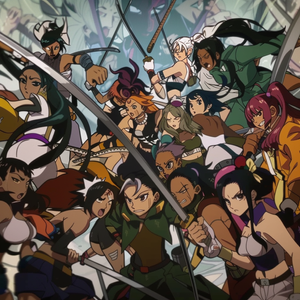

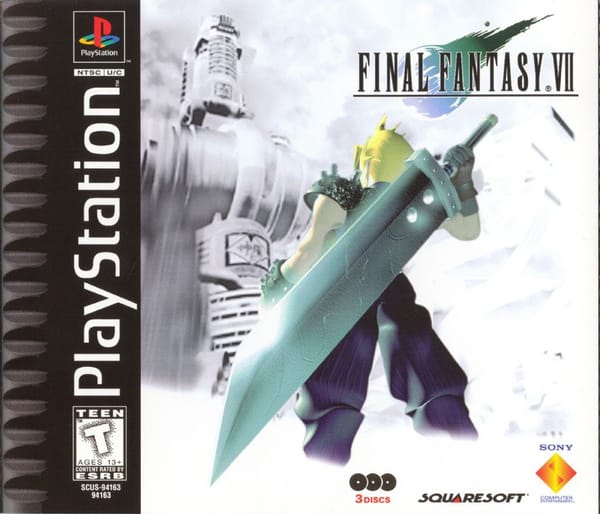



Member discussion